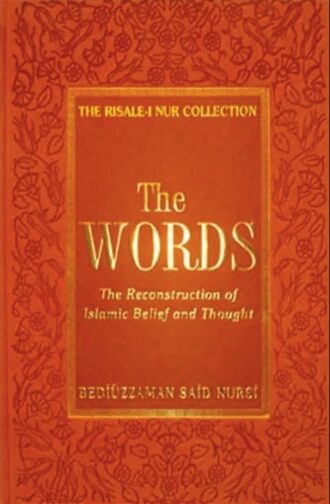Principles in the Risale-i Nur provide people with the essentials or basic principles on which the branches of Islamic knowledge and Islamic science are based.
The Risale-i Nur Collection offers general principles relating to all aspects of Islamic life, jurisprudence, and fields of knowledge. With its source as the Divine Wisdom, or the Divine Name of the All-Wise, its purpose is to provide guidance on thinking, believing, and living according to the precepts of Islam. Additionally, it explains the essential truths that form the foundation for Islamic knowledge and science.
Brilliantly organized and highly readable, this book serves as a compilation of general principles and standards extracted from the Risale-i Nur Collection. It is a handy introduction to the conceptual framework of Said Nursi’s thoughts.


















Reviews
There are no reviews yet.